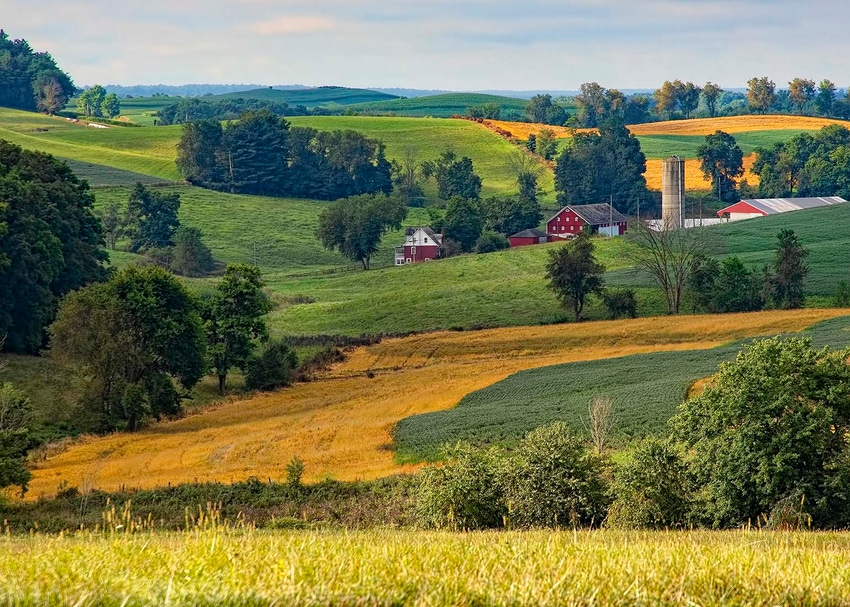April 23, 2021

A new survey by the American Farmland Trust set out to learn more about non-operator farmland landowners.
The survey, “Advancing Understanding of Conservation on Rented Land,” highlights actions needed to improve non-operator outreach and education.
Forty percent, or more than 350 million acres, of farmland and ranchland across America is rented or leased. The 2020 AFT survey focused on the 13 states with the largest number of rented acres. AFT's provided the most comprehensive set of data on non-operator landowners (NOLS) since the 2014 Tenure, Ownership, and Transition of Agricultural Land Survey conducted by the USDA National Agricultural Statistics Service and provided actionable findings for conservationists.
Landowners who responded to the survey were, on average, older and male. Close to a third of the sample in each state had direct farming experience. Respondents tended to not live on the land they rented. In only three states, Indiana, New York and Pennsylvania, did 50% or more of the landowners live on their land. By contrast, only 17% of the respondents in Arkansas and 16% in Texas reported living on land they owned. For those who reported living off their land, the median distance they live from their land ranged from 3 miles for New York respondents to 152 miles for Washington respondents.
How the land was acquired across varied greatly. Those who owned land in New York and Pennsylvania acquired the land by purchasing it, while in all other states surveyed, landowners acquired land primarily through inheriting it.
Landowners in Arkansas, California, Iowa, Illinois, Indiana, Kansas, New York, North Carolina, Ohio, Pennsylvania, Texas, Virginia and Washington were surveyed.
What do the results mean for conservation?
“We must harness these landowners, the lands they lease and farmers who farm the land to meet the high stakes goals for regenerative agriculture, climate change mitigation and the protection of 30% of our nations farmland by 2030,” said Gabrielle Roesch-McNally, AFT’s Women for the Land director and co-author of the NOLs research report and white paper. “We must focus on education and outreach but also on building the relationship between farmer and landowner with conservation on the land as the ultimate outcome.”
“Advancing Understanding of Conservation on Rented Land” analyses the larger research findings, sharing assessments of – who are non-operator landowners, what is their involvement in conservation, their relationship with renters and what information sources and needs do they have? Most importantly, this paper, published in the Journal of Soil and Water Conservation, identifies future work that could lead those in agricultural service provision, farmland preservation, and conservation arenas to focus their efforts with NOLs to improve conservation outcomes on the landscape.
What is very clear is that NOLS are interested in implementing conservation on their land, not just in “getting their next rent check”, a myth that has been perpetuated to the detriment of broader implementation of conservation practices. Greater action is needed to find, reach out to, and engage with NOLs and ultimately their renters to help them access technical and financial resources that will increase the implementation of regenerative farming practices on their lands and help to mitigate climate change.
Click on the download button below to download the report.
Source: American Farmland Trust, which is solely responsible for the information provided and is wholly owned by the source. Informa Business Media and all its subsidiaries are not responsible for any of the content contained in this information asset.
About the Author(s)
You May Also Like




